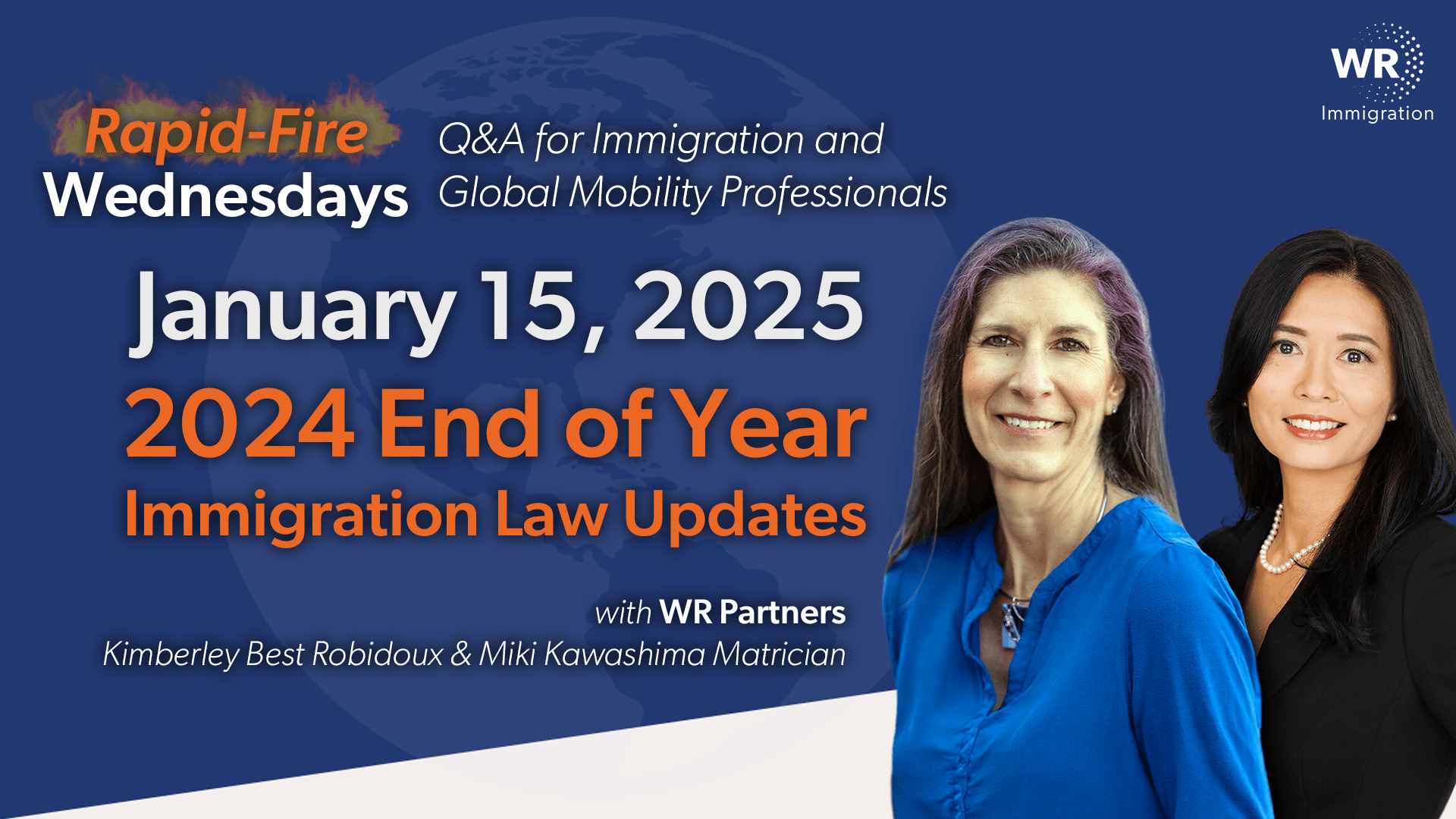The transcript version of our weekly Q&A livestream for corporate immigration professionals. Join our Immigration News Digest Newsletter for more immigration updates.
By Kimberley (Best) Robidoux & Miki Kawashima Matrician
🔥 Question: What is the significance of the Bouarfa v. Mayorkas case for immigration professionals?
Response: In December, the U.S. Supreme Court ruled unanimously in the Bouarfa v. Mayorkas case that federal courts cannot review visa revocations, which are under the discretion of the U.S. Department of Homeland Security (DHS). The ruling clarified that if a statute mandates USCIS to approve or deny a case based on specific criteria, the denial can be challenged in federal court. However, if the decision is discretionary, such as in visa revocations, the court has no authority to intervene.
This decision underscores the finality of DHS’s discretion, leaving applicants with limited recourse—primarily refiling applications while addressing any issues causing revocation, provided those reasons are known. The implications extend to both family-based and employment-based immigration cases, as the same principles apply to visa petition revocations.
🔥 Question: How does this case impact employment-based immigration cases?
Response: For employment-based cases, if an employer’s immigrant visa petition is denied, the denial can still be challenged in court. However, once the petition is approved, any subsequent revocation of the petition or denial of an adjustment of status application is discretionary and cannot be contested in federal court. This could have significant consequences, such as employees losing their ability to remain in the U.S. or employers losing essential staff.
🔥 Question: What does the Loper Bright Enterprises v. Raimondo case mean for immigration policy?
Response: The Supreme Court’s decision in the Loper Bright case, issued in mid-2024, overturned the 1984 Chevron precedent, which required courts to defer to federal agencies’ reasonable interpretations of statutes. This shift puts decision-making power back into the courts and away from federal agencies, marking a move toward deregulation.
🔥 Question: How might Loper Bright Enterprises v. Raimondo positively impact employment-based immigration?
Response: For employers sponsoring visas, this ruling could empower them to challenge denials in court without deference being given to DHS’s interpretation of regulations. This is especially relevant in light of restrictive policies that may emerge under an administration with anti-immigrant tendencies.
Beyond employment-based immigration, Loper-Bright also benefits individuals in removal proceedings. Federal courts can now overturn negative Board of Immigration Appeals (BIA) decisions that previously infringed on due process rights. Justice Gorsuch’s concurring opinion highlighted the case’s potential to undo many of these unfavorable decisions.
🔥 Question: Are there risks for programs created by federal agencies?
Response: Yes. Programs like Deferred Action for Childhood Arrivals (DACA), H4 Employment Authorization Documents (EADs), and STEM OPT extensions, which were established through agency regulation rather than statute, may face challenges. Anti-immigrant plaintiffs could potentially contest these programs in court under the new legal framework.
For example, while the D.C. Circuit Court upheld the H4 EAD program in 2024, similar programs might not withstand future legal challenges. Any disruptions to these work authorization programs could significantly impact employers and employees reliant on them.
🔥 Question: Could this lead to more immigration-related lawsuits?
Response: Likely. Justice Ketanji Brown Jackson cautioned about a potential “tsunami of lawsuits” against federal agencies. On the positive side, this may compel DHS to settle cases more quickly, as seen during the previous administration when corporate immigration attorneys sued USCIS frequently.
Send us your questions via DM or using the below link!
HR Question Submission Form | Rapid-Fire Wednesdays
See you next week!


